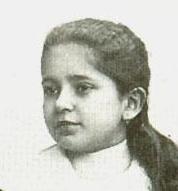UNDER THE CURSE OF MY
FATHER’S TRAINING. MORE FROM KAFKA’S LETTER
TO HIS FATHER.
If I wanted to flee from you, I had to flee from my family as well, even from my mother. I could always find protection with her, but only in a way related to you. She loved you too much and was too loyally devoted to you to be for any length of time an independent intellectual power in a child’s battle….Over the years my mother became even more closely tied to you. She preserved her independence only in the smallest compass, nicely and gently without hurting your innermost feelings. Yet, as the years passed by, she adopted your opinions and your verdicts about your children more fully and blindly, accepted them emotionally more than intellectually, especially in the difficult case of [Kafka’s sister] Ottla. Of course one must always remember that Mother’s position in our family was exhausting. She laboured in the store and in the household, she was a co-sufferer when anyone in the family was sick and suffered twice as much, but all that was exceeded by what she suffered being squeezed between us and you…
 |
| Elli Kafka |
Elli is the only example of succeeding almost completely in breaking away from your circle. I would have expected it least of all from her in the early years. She was such a gawky, weary, timid, sullen, guilt-ridden, overly submissive, spiteful, idle, close-fisted child with a sweet tooth. I could hardly stand looking at her or talking to her. She reminded me too much of myself. We were so similar, being under the curse of your training. Especially her meanness disgusted me because that vice was even greater in me if that is possible. Meanness is the surest sign of deep unhappiness. I was so uncertain in all things, that I felt I owned only what I held in my hands or in my mouth or what was on its way there, and that is what she particularly liked to snatch away, even though we were in a similar situation. But all that changed when she left home as a young woman – young, that is important—when she married, had children, and became cheerful, carefree, courageous, liberal, unselfish, and full of hope.
(Source: Letter to my Father, text on www.kafka.org; my translation)

No comments:
Post a Comment